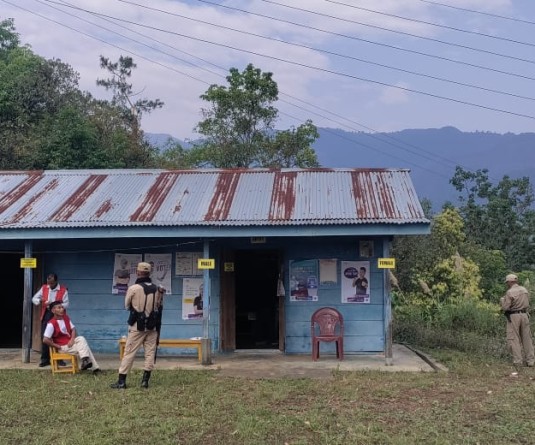
PARIS, December 5 (Agencies): The two primary leaders of the euro zone, Chancellor Angela Merkel of Germany and President Nicolas Sarkozy of France, issued their first joint call on Monday for amendments to Europe’s governing treaties to provide better economic governance for the 17 countries of the euro zone.
Mr. Sarkozy said he hoped the treaty changes would be ready for the ratification process as early as March. The leaders met over lunch at the Élysée Palace to prepare joint proposals to be offered to the full membership of the European Union in Brussels on Thursday night. They agreed to propose automatic penalties for countries that exceed European deficit limits as well as the creation of a monetary fund for Europe. They also backed monthly meetings of European leaders.
“We want to make sure that the imbalances that led to the situation in the euro zone today cannot happen again,” the French leader said at a news conference after the lunch. “Therefore we want a new treaty, to make clear to the peoples of Europe, members of Europe and members of the euro zone, that things cannot continue as they are,” he said.
The overall deal European leaders seek this week will not be one transformative leap. The various goals are to show resolve to protect Italy and Spain, revise the economic governance of the euro zone and prevent further debt crises, according to officials involved in the talks over the deal. The meeting in Brussels, beginning Thursday and extending into Friday, is considered a last chance this year to set the euro right, even as some investors and analysts are beginning to predict its collapse.
“The survival of the euro zone is in play,” one senior European official said. “So far it’s been too little, too late.” The emerging solution is being negotiated under great pressure from the markets, the banks, the voters and the Obama administration, which wants an end to the uncertainty about the euro that is dragging down the global economy.
In the process, European leaders will begin to change the fundamental structure of the union, creating a form of centralized oversight of national budgets, with sanctions for the profligate, to reassure investors that this kind of sovereign-debt crisis is finally being managed and should not happen again.
The new euro package, as European and American officials describe it, is being negotiated along four main lines. It combines new promises of fiscal discipline that will be embedded in amendments to European treaties; a leveraging of the current bailout fund, the European Financial Stability Facility, to perhaps two or even three times its current balance; a tranche of money from the International Monetary Fund to augment the bailout fund; and quiet political cover for the European Central Bank to keep buying Italian and Spanish bonds aggressively in the interim, to ensure that those two countries — the third- and fourth-largest economies in the euro zone — are not driven into default by ruinous interest rates on their debt.
Mr. Sarkozy said he hoped the treaty changes would be ready for the ratification process as early as March. The leaders met over lunch at the Élysée Palace to prepare joint proposals to be offered to the full membership of the European Union in Brussels on Thursday night. They agreed to propose automatic penalties for countries that exceed European deficit limits as well as the creation of a monetary fund for Europe. They also backed monthly meetings of European leaders.
“We want to make sure that the imbalances that led to the situation in the euro zone today cannot happen again,” the French leader said at a news conference after the lunch. “Therefore we want a new treaty, to make clear to the peoples of Europe, members of Europe and members of the euro zone, that things cannot continue as they are,” he said.
The overall deal European leaders seek this week will not be one transformative leap. The various goals are to show resolve to protect Italy and Spain, revise the economic governance of the euro zone and prevent further debt crises, according to officials involved in the talks over the deal. The meeting in Brussels, beginning Thursday and extending into Friday, is considered a last chance this year to set the euro right, even as some investors and analysts are beginning to predict its collapse.
“The survival of the euro zone is in play,” one senior European official said. “So far it’s been too little, too late.” The emerging solution is being negotiated under great pressure from the markets, the banks, the voters and the Obama administration, which wants an end to the uncertainty about the euro that is dragging down the global economy.
In the process, European leaders will begin to change the fundamental structure of the union, creating a form of centralized oversight of national budgets, with sanctions for the profligate, to reassure investors that this kind of sovereign-debt crisis is finally being managed and should not happen again.
The new euro package, as European and American officials describe it, is being negotiated along four main lines. It combines new promises of fiscal discipline that will be embedded in amendments to European treaties; a leveraging of the current bailout fund, the European Financial Stability Facility, to perhaps two or even three times its current balance; a tranche of money from the International Monetary Fund to augment the bailout fund; and quiet political cover for the European Central Bank to keep buying Italian and Spanish bonds aggressively in the interim, to ensure that those two countries — the third- and fourth-largest economies in the euro zone — are not driven into default by ruinous interest rates on their debt.




